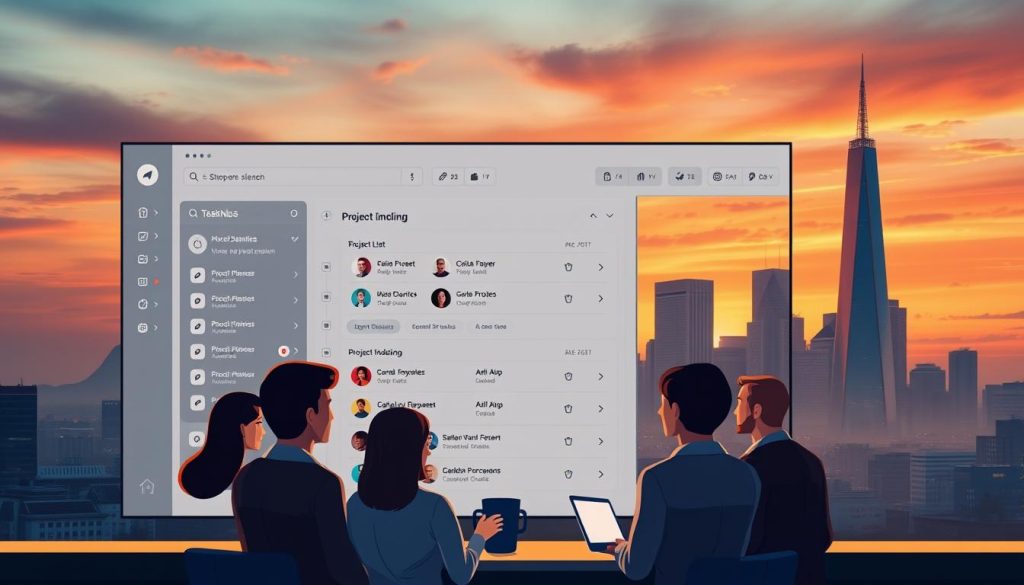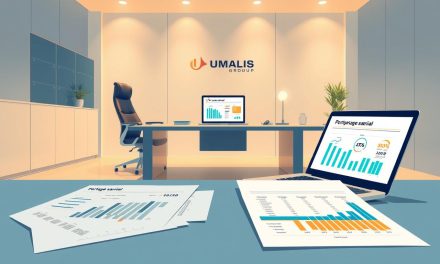Welcome to your complete guide on finding the right professional to analyze your business initiatives. Many companies in France now prefer flexible talent over permanent staff.
These specialists bring deep expertise without long-term commitments. They quickly adapt to your industry’s unique challenges and opportunities.
This guide shows you how to find, evaluate, and onboard the perfect match for your needs. We cover everything from defining requirements to successful collaboration.
Whether you work in construction, finance, technology, or manufacturing, this resource helps you make smart decisions. You’ll learn practical tips and see real examples.
By the end, you’ll understand how the right professional can transform your outcomes and boost performance. Let’s begin your journey toward measurable results.
Table of Contents
Key Takeaways
- Flexible talent provides specialized expertise without long-term commitments
- Skilled professionals adapt quickly to industry-specific challenges
- French businesses increasingly prefer this cost-effective solution
- Proper evaluation ensures you find the right match for your needs
- Clear requirements lead to more successful collaborations
- Industry-specific knowledge drives better project outcomes
- Strategic oversight can significantly improve business performance
Why Your Business Needs a Freelance Project Analyst
Companies across various sectors are discovering the value of bringing in outside specialists for critical evaluations. These professionals offer unique advantages that internal teams sometimes lack.
External experts bring fresh perspectives to your most complex challenges. They see opportunities and risks that familiar eyes might miss. This outside viewpoint often leads to breakthrough solutions.
Specialized skills come without long-term commitments. You pay only for the expertise you need, when you need it. This approach saves significant resources compared to full-time hires.
Scaling capabilities becomes effortless during peak periods. Bring in extra help for specific initiatives without expanding your permanent team. The flexibility suits both short-term needs and complete lifecycles.
Risk mitigation improves dramatically with expert review. Professionals spot potential issues before they become problems. Early detection prevents costly delays and ensures smoother execution.
Cross-industry experience introduces innovative approaches. What works in manufacturing might revolutionize your technology development. These transferred insights create competitive advantages.
Knowledge transfer benefits your permanent staff. They learn new methodologies and best practices. This skills development strengthens your entire organization.
« The right external perspective can transform how you approach challenges and uncover opportunities you didn’t know existed. »
Many French companies report accelerated timelines after engaging specialists. Bottlenecks disappear as experienced professionals streamline processes. Clients see faster results and better outcomes.
Your business gains flexibility without sacrificing expertise. Match the right professional to each specific need. This strategic approach maximizes every investment.
Defining the Role: What is a Freelance Project Analyst?
Many organizations wonder how external specialists fit into their teams. Understanding this role helps you make informed hiring decisions.
These professionals focus on deep analysis rather than general oversight. They examine data, processes, and requirements to uncover insights.
Their work supports better decision-making throughout your initiatives. You gain clarity on what works and what needs improvement.
Core Differences from a Full-Time Project Manager
Engagement models vary significantly between these roles. External specialists typically work on specific contracts rather than permanent employment.
Commitment levels differ in duration and scope. You engage experts for particular phases or challenges rather than ongoing management.
Specialization depth often exceeds generalist capabilities. These professionals bring focused expertise in specific methodologies or industries.
« The analytical specialist provides the deep dive examination that general oversight sometimes misses, delivering insights that drive smarter decisions. »
Collaboration patterns emphasize complementary support. These experts work alongside your team rather than replacing existing leadership.
Reporting structures remain flexible based on your needs. They integrate seamlessly without disrupting your organization’s hierarchy.
The Project Management Lifecycle and Your Analyst’s Role
Every initiative follows a structured progression from concept to completion. This progression involves five distinct phases that ensure thorough execution.
During initiation, your specialist helps define objectives and scope. They analyze feasibility and potential constraints before commitment.
Planning benefits from their detailed examination of requirements. They turn broad goals into specific, measurable actions.
Execution sees them monitoring data and processes closely. They identify patterns and anomalies that might escape general notice.
Monitoring and controlling becomes more precise with their input. They provide real-time analysis of progress and potential risks.
Closure involves their thorough review of outcomes and lessons. They document insights for future improvement and knowledge transfer.
| Aspect | Full-Time Manager | Analytical Specialist |
|---|---|---|
| Primary Focus | Overall leadership and coordination | Deep examination and insight generation |
| Engagement Duration | Long-term employment | Defined period or phase-based |
| Methodology Expertise | Broad knowledge across methods | Deep specialization in specific approaches |
| Industry Knowledge | General understanding | Niche expertise in particular sectors |
| Contract Type | Permanent employment agreement | Specific statement of work or project contract |
This structured approach ensures comprehensive coverage of your initiative’s needs. Each phase receives appropriate analytical attention.
Many French companies use tools like Asana and OpenProject for planning and tracking. These platforms support the detailed work these specialists perform.
The temporary nature of these engagements provides flexibility. You access specialized skills exactly when needed without long-term commitments.
Your organization benefits from fresh perspectives and deep expertise. These professionals help you navigate complex challenges with confidence.
Key Responsibilities of a Top-Tier Freelance Project Analyst
Successful initiatives require more than just oversight—they demand deep expertise in specific critical functions. The right specialist brings structured approaches to complex challenges.
These professionals transform business needs into actionable plans. They ensure every team member understands their role in achieving objectives.

Their work spans from initial discovery through final validation. Each phase receives careful attention to detail and quality.
Requirement Gathering and User Story Development
Great outcomes begin with clear understanding. Experts use various techniques to capture complete needs.
They conduct workshops and interviews with stakeholders. This ensures no critical detail gets overlooked.
User stories emerge from these discussions. Each story includes acceptance criteria and functional specifications.
Backlog prioritization becomes more effective with their input. They help teams focus on high-value features first.
« The magic happens when business needs transform into clear, actionable development tasks that everyone understands. »
Stakeholder Communication and Liaison
Effective communication bridges gaps between departments. Specialists translate technical concepts into business language.
They ensure everyone remains aligned throughout the initiative. Regular updates keep all parties informed.
Liaison work requires understanding different priorities. They facilitate compromise when conflicts arise.
This role prevents misunderstandings that could derail progress. Clear documentation supports consistent messaging.
Risk Analysis and Anomaly Investigation
Proactive risk management identifies potential issues early. Experts examine processes for weak points.
They develop mitigation strategies before problems occur. This approach saves time and resources.
When anomalies appear, they investigate root causes. Their analysis leads to effective solutions.
Quality assurance validates that deliverables meet requirements. They ensure final products match initial expectations.
These professionals capture lessons learned for continuous improvement. Their recommendations enhance future initiatives.
French businesses benefit from their structured approach to complex challenges. Outcomes improve significantly with their involvement.
Essential Skills to Look for in Your Hire
Finding the right professional requires understanding both technical capabilities and personal qualities. The best candidates blend deep expertise with exceptional interpersonal abilities.
These skills determine how effectively your specialist will perform. They transform complex challenges into successful outcomes.
French companies particularly value professionals who combine technical mastery with cultural adaptability. This combination ensures smooth integration with your team.
Non-Negotiable Hard Skills: From API Specs to Data Ingestion
Technical capabilities form the foundation of effective analysis. These measurable skills separate adequate performers from exceptional ones.
API specification writing stands out as particularly valuable. This skill ensures proper system integrations and data exchange between platforms.
Professionals must understand data ingestion flows and transformation requirements. They analyze how information moves between systems and transforms during transfer.
Tool proficiency extends beyond basic software knowledge. Experts master specialized platforms for analysis, testing, and collaboration.
Risk management capabilities include identifying potential issues before they become problems. This proactive approach saves time and resources.
Budgeting and contract management skills ensure financial responsibility. Professionals maintain oversight of resources throughout engagements.
| Skill Category | Specific Capabilities | Business Impact |
|---|---|---|
| Technical Specifications | API design, documentation, integration patterns | Ensures system compatibility and data integrity |
| Data Management | Ingestion flows, transformation logic, storage solutions | Maintains information accuracy and accessibility |
| Analysis Tools | GAP/VSI platforms, testing automation, monitoring systems | Provides deep insights and quality assurance |
| Process Understanding | Pricing models, underwriting procedures, sector-specific knowledge | Delivers industry-relevant solutions and recommendations |
Critical Soft Skills: Communication and Collaboration
Interpersonal abilities determine how well specialists integrate with your team. These skills facilitate productive relationships across departments.
Communication excellence allows translation between technical and business languages. Professionals explain complex concepts in understandable terms.
Collaboration capabilities enable effective work with diverse teams. Specialists bridge gaps between different disciplines and perspectives.
Problem-solving approaches involve creative thinking and analytical breakdown. Experts decompose complex challenges into manageable components.
Adaptability skills help professionals thrive in various organizational cultures. They adjust their methods to match your company’s environment.
Facilitation and decision-making abilities keep initiatives moving forward. Specialists guide discussions toward concrete outcomes and actions.
« The most valuable professionals combine technical depth with the human touch—they don’t just solve problems, they help teams understand solutions. »
These combined skills create professionals who deliver exceptional value. They bring both the expertise and the interpersonal qualities needed for success.
Your hiring process should evaluate both skill sets thoroughly. Look for evidence of technical mastery and collaborative achievement.
French organizations particularly appreciate professionals who understand local business customs. This cultural awareness enhances every interaction.
Industries That Benefit Most from a Freelance Project Analyst
Certain industries naturally gain more advantages from specialized analytical support than others. These sectors face complex challenges that demand expert attention.
The construction field relies heavily on precise timeline management. Multiple stakeholders and regulatory requirements create intricate scenarios.
Specialists help navigate these complexities with careful planning. They ensure compliance while maintaining progress.
Financial institutions use analytical expertise for system implementations. Compliance projects and process optimization benefit greatly.
These professionals bring structured approaches to complex financial operations. They help institutions adapt to changing regulations.
Technology companies leverage this support for software development. System integrations and digital transformation efforts require deep analysis.
The information sector values these skills highly, with average rates around $95,904 yearly. This reflects the critical nature of their work.
Manufacturing operations benefit from production process optimization. New system implementations and supply chain improvements drive efficiency.
Healthcare organizations face unique regulatory environments. Implementing new technologies while maintaining compliance demands expert guidance.
Professional services firms use analytical support for client engagements. Internal improvements and practice development benefit from outside perspectives.
Government agencies manage public infrastructure projects with this expertise. Service delivery improvements require careful analysis and planning.
Nonprofit organizations maximize impact within budget constraints. Analytical support helps them achieve more with limited resources.
These industries value the flexibility that specialized professionals provide. They access top-tier expertise without long-term commitments.
« The right analytical perspective transforms how industries approach their most complex challenges, delivering results that internal teams might miss. »
Each sector benefits from fresh insights and specialized knowledge. The temporary nature of these engagements provides cost-effective solutions.
French businesses across these industries report improved outcomes. They gain competitive advantages through strategic analytical support.
Identifying Your Project’s Specific Needs and Goals
Before searching for the right specialist, take time to understand your exact requirements. This preparation ensures you find someone who truly fits your unique situation.
Clear objectives guide your entire selection process. They help you match the professional’s skills to your most important goals.

Start by examining your initiative’s complexity and industry context. Different sectors demand specialized knowledge and approaches.
Evaluate your internal team’s current capabilities honestly. Identify where extra support would bring the most value.
Define what success looks like for your engagement. Establish measurable metrics from the beginning.
This helps track effectiveness and return on investment clearly.
Consider how much support you need across various phases. Some initiatives require intensive help at specific points.
Others benefit from consistent involvement throughout the entire lifecycle.
Match the specialist’s expertise to your preferred methodology. Whether you use Agile, Waterfall, or hybrid approaches matters.
The right professional adapts their methods to your organization’s style.
Identify potential risks that could impact your outcomes. Look for someone who can help mitigate these challenges.
Their specialized skills should address your most concerning possibilities.
Document everything thoroughly before starting your search. Comprehensive notes facilitate better communication with candidates.
They ensure everyone understands expectations and requirements clearly.
« Proper preparation transforms your search from guesswork to precision matching, ensuring you find exactly what your initiative requires. »
French businesses find this structured approach particularly valuable. It saves time and resources while delivering better results.
Your careful planning lays the foundation for a successful partnership and outstanding outcomes.
Creating a Compelling and Accurate Job Description
A great job description acts as your first handshake with potential talent. It sets the tone for your entire collaboration.
This document must attract the right professionals while filtering unsuitable candidates. Balance detail with clarity to achieve both goals.
Start with a clear overview of your initiative’s purpose and objectives. Explain what success looks like and why this work matters.
Describe your organizational culture and working environment honestly. Help candidates visualize how they would fit into your team.
Outline specific responsibilities without being overly restrictive. Focus on outcomes rather than micromanaging methods.
Be transparent about challenges while maintaining positive framing. The best professionals appreciate honest assessments.
« The most effective descriptions balance aspiration with reality—they paint an exciting picture while preparing candidates for actual work conditions. »
Structure compensation information to attract quality talent while preserving flexibility. Consider including range-based options.
Clearly define timelines, expected hours, and engagement duration. This manages expectations from the beginning.
Explain how the specialist will integrate with your existing team structure. Describe reporting relationships and collaboration patterns.
Mention potential for ongoing work or growth opportunities when appropriate. This attracts professionals seeking long-term relationships.
French businesses benefit from adapting their descriptions to local market expectations. Understanding market adaptation strategies helps craft more effective postings.
Your description should reflect both your immediate needs and broader organizational values. This holistic approach attracts better matches.
| Component | Essential Elements | Purpose |
|---|---|---|
| Project Overview | Objectives, scope, business impact | Sets context and generates interest |
| Responsibilities | Key tasks, decision authority, deliverables | Defines role expectations clearly |
| Required Skills | Technical capabilities, experience level, tools | Filters candidates appropriately |
| Compensation | Rate range, payment terms, benefits | Attracts suitable talent level |
| Engagement Details | Timeline, hours, location flexibility | Manages practical expectations |
| Team Integration | Reporting structure, collaboration methods | Explains working relationships |
Review your description for clarity and completeness before publishing. Ask colleagues for feedback to identify missing elements.
Test different versions to see which attracts better candidates. Small adjustments can significantly improve response quality.
Remember that your description represents your organization’s professionalism. A well-crafted document makes a strong first impression.
This careful preparation ensures you attract professionals who truly match your needs. You save time during selection while improving outcomes.
Where to Find the Best Freelance Project Analyst Talent
Your search for exceptional analytical talent begins with knowing where to look. The right platforms and connections make all the difference in finding professionals who match your specific needs.
Multiple channels exist for discovering these specialized experts. Each offers unique advantages depending on your requirements and timeline.
Combining approaches often yields the best results. You create a comprehensive pipeline of qualified candidates.
Top Freelancer Platforms and Job Sites
Digital marketplaces connect businesses with skilled professionals worldwide. These platforms offer extensive filtering options to match your exact specifications.
Upwork provides access to pre-vetted professionals across various specialties. Their rating system helps identify top performers quickly.
Fiverr offers project-based services with clear scope definitions. This works well for well-defined analytical tasks.
Freelancer.com boasts an impressive track record with over 195,000 client reviews. Their 4.9/5 star rating reflects consistent satisfaction.
Traditional job boards also attract experienced professionals. Indeed and LinkedIn feature dedicated sections for contract positions.
Industry-specific platforms cater to particular sectors. These specialized sites attract professionals with relevant domain knowledge.
Each platform requires slightly different search strategies. Optimize your profiles and job postings for better visibility.
The Power of Networking and Professional Referrals
Personal connections often yield the highest-quality candidates. Referrals from trusted sources reduce screening time significantly.
Former colleagues and employers know professionals’ work ethics firsthand. Their recommendations carry substantial weight.
Industry conferences and events create natural meeting opportunities. Face-to-face interactions reveal compatibility beyond resumes.
Professional associations gather experts in specific fields. Membership directories provide targeted search capabilities.
« The best candidates often come through personal networks rather than public postings—trusted referrals save time and reduce hiring risks. »
Social media platforms, particularly LinkedIn, facilitate professional connections. Engage with industry groups and discussion forums.
University alumni networks offer access to emerging talent. Recent graduates often bring fresh perspectives and updated methodologies.
Specialized recruitment agencies focus on analytical roles. They maintain pre-screened candidate pools for faster matching.
Industry forums and online communities host active professionals. These platforms reveal thought leaders and experienced practitioners.
French businesses can explore local freelance sourcing strategies for regional advantages. Understanding local networks enhances your search effectiveness.
| Source Type | Platform Examples | Best For | Time Investment |
|---|---|---|---|
| Digital Marketplaces | Upwork, Fiverr, Freelancer.com | Quick access, broad selection | Low to medium |
| Job Boards | Indeed, LinkedIn, Jobstreet | Experienced professionals | Medium |
| Networking | Conferences, referrals, associations | Quality vetting, trusted connections | High |
| Social Media | LinkedIn groups, Twitter communities | Industry-specific talent | Medium |
| Specialized Agencies | Recruitment firms, alumni networks | Pre-screened candidates | Low |
Combining multiple approaches creates a robust candidate pipeline. You increase chances of finding the perfect match for your needs.
Each channel requires different engagement strategies. Balance your time investment based on urgency and quality requirements.
The right mix depends on your specific situation and available resources. Experiment to discover what works best for your organization.
Evaluating Portfolios and Assessing Past Experience
Portfolio assessment separates exceptional professionals from average performers. Your evaluation process determines whether you find someone who truly understands your unique challenges.
Systematic review techniques help you see beyond surface presentations. They reveal actual capabilities and past performance patterns.

Start by examining case studies for problem complexity and solution effectiveness. Look for measurable outcomes rather than general descriptions.
Strong professionals document specific achievements with clear metrics. They show how their work created tangible business value.
Analyze experience diversity across industries and organizational contexts. Versatile professionals adapt more quickly to new environments.
Methodology depth matters for specific technical domains. Verify expertise with tools and approaches relevant to your needs.
Communication skills shine through documentation samples and presentation decks. Clear process diagrams indicate strong analytical thinking.
Problem-solving capabilities appear in how professionals approached complex challenges. Look for innovative solutions rather than standard approaches.
« The best portfolios tell compelling stories about turning difficult situations into successful outcomes through careful analysis and strategic thinking. »
Verification through reference checks and client testimonials adds credibility. Measurable results documentation provides concrete evidence of capabilities.
Cultural fit evaluation examines previous organizational collaborations. Professionals who thrive in similar environments integrate more smoothly.
Adaptability shows in handling new industries or technologies. Learning agility indicates future success with evolving requirements.
French businesses particularly value professionals who understand local market nuances. This cultural awareness enhances collaboration effectiveness.
Create evaluation scorecards to objectively compare candidates. Weight criteria based on your specific requirements and priorities.
| Evaluation Area | What to Look For | Assessment Method | Weighting Importance |
|---|---|---|---|
| Case Study Quality | Problem complexity, solution innovation, measurable results | Portfolio review, specific examples | High |
| Industry Experience | Relevant sector knowledge, similar challenge experience | Project diversity analysis, client list review | Medium-High |
| Technical Proficiency | Tool mastery, methodology expertise, certification validation | Skill verification, sample examination | High |
| Communication Evidence | Documentation clarity, presentation quality, diagram effectiveness | Material review, writing sample analysis | Medium |
| Problem-Solving Approach | Creative solutions, analytical depth, results orientation | Case study examination, reference checking | High |
| Cultural Adaptation | Previous organizational fits, team collaboration evidence | Reference feedback, project history review | Medium |
| Verification Materials | Testimonials, measurable outcomes, reference availability | Direct validation, documentation review | Medium-High |
This structured approach saves time and improves selection accuracy. You focus on evidence rather than impressions during evaluation.
Allocate appropriate time for thorough assessment at this point. Rushed decisions often lead to poor matches and disappointing outcomes.
French organizations find this methodical process particularly valuable. It aligns with local business practices while ensuring quality standards.
Your careful evaluation ensures you find professionals who deliver exactly what you need. This investment pays dividends throughout your engagement.
The Interview Process: Key Questions to Ask
The right interview approach transforms candidate screening from guesswork into precise talent identification. This critical phase reveals how professionals think, communicate, and solve problems.
Technical capabilities shine through targeted questions about specific methodologies. Ask about their experience with requirement gathering tools and techniques.
Problem-solving skills emerge when discussing past complex challenges. Inquire about their approach to breaking down intricate business problems.
Cultural fit assessment requires questions about collaboration preferences. Learn how they adapt to different team dynamics and organizational cultures.
Behavioral questions reveal patterns in stakeholder management. Ask about specific experiences handling difficult conversations or conflicting priorities.
« The best interviews feel like professional conversations rather than interrogations—they reveal character through natural discussion. »
Scenario-based questions simulate real project challenges. Present hypothetical situations and observe their analytical thinking process.
Communication skills assessment goes beyond verbal responses. Evaluate how clearly they explain complex concepts to non-technical audiences.
Learning agility becomes apparent through questions about adaptation. Ask how they’ve quickly mastered new industries or technologies.
Practical exercises provide hands-on capability evaluation. Case studies and small assignments reveal skills beyond resume claims.
Multi-stage processes ensure comprehensive assessment while respecting time. Consider initial screening followed by deeper technical and cultural interviews.
Effective tracking of candidate responses helps compare qualifications objectively. Document answers consistently across all interviews.
Direct contact with references validates claimed experiences and achievements. Previous client feedback provides valuable insights.
French businesses benefit from adapting interview styles to local communication norms. This cultural awareness improves assessment accuracy.
Your structured approach ensures you identify professionals who truly match your needs. The right questions reveal capabilities that transform business outcomes.
Understanding Freelance Project Analyst Rates and Budgeting
Smart budgeting for specialized expertise requires understanding market dynamics and pricing structures. Your investment in analytical support should align with both your needs and industry standards.
Current data shows significant rate variations based on experience and specialization. ZipRecruiter reports average hourly rates around $46.19, with top performers reaching $87 per hour.
Annual equivalents reflect this range clearly. Top earners achieve approximately $181,000 yearly, while the 75th percentile averages $123,500. The median sits at $96,081 annually.
Several key factors influence these pricing structures:
- Experience level significantly impacts compensation expectations
- Industry specialization commands premium rates for niche knowledge
- Project complexity determines appropriate investment levels
- Geographic location adjusts for regional cost differences
- Engagement duration affects per-hour compensation calculations
Different pricing models suit various situations. Hourly rates work well for flexible, evolving initiatives. Daily rates provide consistency for intensive work periods.
Project-based pricing offers predictability for well-defined efforts. Retainer arrangements ensure ongoing availability for recurring needs.
« Smart budgeting balances fair compensation with business value, ensuring both parties feel respected and motivated throughout the engagement. »
Location adjustments matter when working across regions. Professionals in high-cost areas typically command higher rates. Remote collaborations might reduce geographic premiums.
Industry expertise significantly influences pricing structures. Specialized knowledge in sectors like technology or finance often justifies premium compensation. Generalists typically offer more accessible rates.
Project duration relationships deserve careful consideration. Short-term initiatives often require higher per-hour rates. Longer engagements might justify volume discounts.
Effective budgeting accounts for potential scope changes. Include contingency reserves for unexpected expansions. Clear change management processes prevent budget surprises.
Negotiation strategies should maintain positive relationships. Focus on value exchange rather than simple price reduction. Discuss trade-offs between scope, timeline, and budget.
Value-based evaluation considers business impact potential. Higher rates might justify themselves through improved outcomes. Calculate potential return on investment before setting budgets.
Payment structures should align with progress milestones. Tie compensation to specific deliverables and achievements. This approach ensures fairness for both parties.
Additional costs beyond base rates require attention. Software licenses, specialized tools, or travel expenses might add to total investment. Clarify responsibility for these items early.
French businesses should consider local market conditions when budgeting. Understanding regional rate variations helps set realistic expectations. Cultural factors might influence negotiation approaches.
Your budgeting process should balance quality with affordability. The right investment level attracts capable professionals while maintaining financial responsibility. This balance ensures successful outcomes for both parties.
Popular Project Management Tools for Effective Collaboration
The right technology ecosystem transforms how specialists and internal teams work together. Modern platforms bridge communication gaps and streamline complex workflows.
These solutions create shared visibility across all activities. Everyone stays informed and aligned throughout the engagement.

Choosing appropriate tools depends on your specific methodology and team structure. The best options adapt to your preferred working style.
Tools for Work Management and Automation
Monday.com stands out for its exceptional ease of use and collaboration features. The platform offers extensive automation capabilities that save valuable time.
Pre-built templates accelerate setup for common scenarios. Teams quickly adapt the system to their specific needs.
Integration options connect with other business applications seamlessly. This creates a unified technology environment.
ClickUp provides sophisticated workspace organization and hierarchy features. Task prioritization becomes more intuitive and effective.
« The best platforms don’t just manage work—they anticipate needs and automate routine tasks, freeing professionals for strategic thinking. »
Communication tools maintain clear connections between distributed teams. Regular check-ins and status updates happen effortlessly.
Visual tools help everyone understand progress and challenges. Dashboards and reports provide at-a-glance insights.
Automation handles repetitive administrative tasks automatically. This streamlines operations and reduces manual effort.
Tools Built for Agile and Technical Teams
Jira specializes in supporting Agile methodologies with precision. The platform excels at sprint planning and issue tracking.
Release management features ensure smooth deployment cycles. Teams coordinate complex launches with confidence.
Backlog prioritization becomes more systematic and transparent. Everyone understands what comes next and why.
Requirement management tools capture detailed specifications accurately. User story tracking maintains focus on customer needs.
Documentation platforms preserve meeting notes and decision records. This creates valuable institutional knowledge.
Integration capabilities allow different systems to work together harmoniously. Data flows smoothly between applications.
Selection criteria should match your methodology, team size, and complexity. The right choice feels natural to all stakeholders.
French teams particularly appreciate tools that support local collaboration styles. Cultural fit matters as much as technical features.
These platforms create environments where specialists and internal teams thrive together. The right technology investment pays dividends throughout your engagement.
Onboarding Your Freelance Project Analyst for Success
A smooth start sets the stage for outstanding results. Proper integration ensures your specialist contributes immediately.
Effective onboarding combines technical access with cultural understanding. This dual approach creates strong foundations.
Begin by sharing your complete mission context and business objectives. Include stakeholder backgrounds and historical perspectives.
Introduce key team members across all relevant departments. Cover business units like pricing and underwriting teams.
Include technical groups handling development and API integration. Don’t forget specialized experts in modeling and visualization.
Establish clear communication protocols from day one. Define meeting schedules and reporting structures explicitly.
Provide necessary system access with appropriate security controls. Balance openness with protection of sensitive information.
Share organizational culture norms and decision-making styles. Help your specialist understand how things really work.
Set clear expectations about deliverables and quality standards. Define timelines and success metrics together.
Create a structured plan covering both technical and cultural aspects. This ensures comprehensive integration.
« The first days determine the entire engagement’s trajectory—investing in proper onboarding pays dividends throughout the collaboration. »
Establish feedback mechanisms for continuous improvement. Regular check-ins identify adjustments needed quickly.
Document your onboarding process for future engagements. Create repeatable patterns that save time later.
French businesses benefit from adapting these practices to local work styles. Cultural awareness enhances integration.
Your careful preparation ensures rapid productivity and strong relationships. This foundation supports outstanding outcomes.
Maintaining Clear Communication and Tracking Progress
Effective collaboration hinges on establishing robust communication channels from day one. This foundation ensures everyone stays aligned and informed throughout your engagement.
Regular check-ins create rhythm without micromanagement. Weekly syncs work well for most initiatives. These meetings should balance updates with problem-solving.
Daily stand-ups might suit fast-moving efforts. The key is consistency in timing and format.
Progress tracking combines quantitative and qualitative measures. Metrics like completion percentages provide hard data. Qualitative assessments capture nuances behind the numbers.
Tools like shared dashboards offer real-time visibility. Everyone sees the same information simultaneously. This transparency builds trust and alignment.
Documentation standards ensure clear record-keeping. Use consistent formats for meeting notes and decisions. Markdown works well for technical documentation.
« The most successful engagements thrive on predictable communication patterns—everyone knows when and how information will flow. »
Stakeholder updates should match audience needs. Technical teams require detailed specifications. Business leaders prefer high-level summaries with impact assessments.
Expected deliverables include user stories and functional specifications. API documentation and data ingestion requirements need clear articulation. Impact studies and test specifications complete the picture.
Validation reports and weekly activity summaries provide regular progress snapshots. Technical documentation in Markdown ensures accessibility and version control.
Cultural and time zone differences require special consideration. Establish overlapping working hours for real-time collaboration. Use asynchronous tools for other communications.
Meeting effectiveness depends on clear agendas and outcomes. Circulate materials beforehand to maximize discussion time. Document action items and decisions promptly.
Escalation paths should be defined early. Everyone needs to know how to raise urgent issues. This prevents small problems from becoming major delays.
Communication continuity plans handle disruptions gracefully. Designate backup contacts during absences. Document key decisions and context for smooth transitions.
French businesses appreciate these structured approaches. They align with local professional expectations while delivering global best practices.
Your investment in clear communication and systematic tracking pays dividends throughout the engagement. These practices ensure smooth progress and successful outcomes.
Conclusion: Taking the Next Step to Hire Your Expert
You now have the knowledge to find and hire the right professional for your needs. This guide has shown you how to define requirements, evaluate candidates, and set up successful collaborations.
Take action by creating your personalized hiring plan. Use the strategies and tools discussed to approach your first engagement with confidence.
Remember that hiring the right specialist is an investment in your success. It can transform outcomes and boost your team’s capabilities.
Measure results and refine your approach based on experience. Build lasting relationships with top performers for future needs.
Your journey toward better business results starts today. Embrace the opportunity to work with skilled professionals who deliver real value.
FAQ
What does a freelance project analyst do?
A freelance project analyst helps plan, track, and improve your projects. They gather requirements, manage risks, and keep everyone on the same page. Their goal is to make sure your project runs smoothly and meets its goals.
How is a freelance project analyst different from a full-time manager?
A freelance analyst works on a contract basis, offering flexibility and specialized skills for specific projects. A full-time manager is a permanent employee who handles ongoing operations. Freelancers often bring fresh perspectives and can be more cost-effective for short-term needs.
What industries benefit most from hiring a freelance project analyst?
Many industries see great results, especially tech, marketing, finance, and construction. Any field that deals with complex projects, tight deadlines, or changing requirements can benefit from their expertise.
What skills should I look for when hiring?
Look for strong analytical abilities, experience with tools like Jira or Asana, and excellent communication skills. Knowledge of your industry and a proven track record with similar projects are also big pluses.
How do I find a qualified freelance project analyst?
You can find great talent on platforms like Upwork, Toptal, or LinkedIn. Referrals from your network are also a reliable way to connect with skilled professionals who come highly recommended.
What are typical rates for a freelance project analyst?
Rates vary based on experience, project complexity, and location. Many charge by the hour or project. It’s best to discuss your budget and needs upfront to find a fit that works for both of you.
What tools do freelance project analysts use?
They often use software like Trello for task management, Slack for communication, and Microsoft Project for planning. These tools help keep everything organized and ensure clear, timely updates.
How can I ensure good communication with my freelance hire?
Set clear expectations from the start. Use regular check-ins, shared documents, and collaboration tools. Make sure you’re both on the same page about goals, timelines, and how progress will be tracked.





